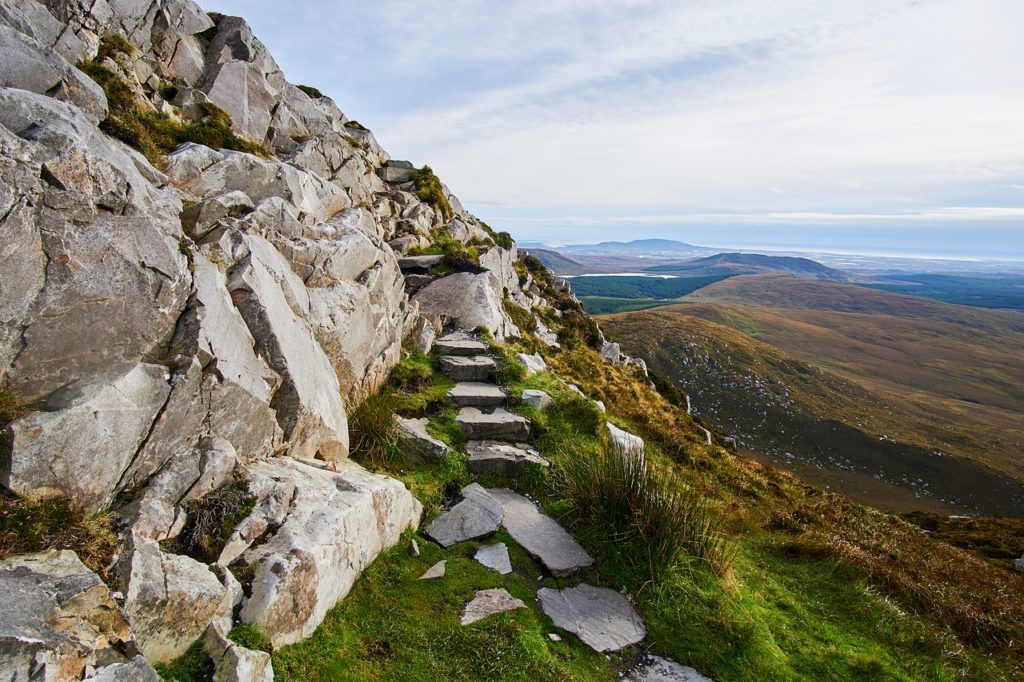An aimsir chaite – The past tense Posted by Bridgette on May 20, 2021 in Grammar
An aimsir chaite – The past tense
The past tense is used to denote a single event in the past. In English, we typically add ‘ed’ to the end of the verb to form the past.
In Irish it is also formed from the verb stem alone, with some additions.
bris (to break)
bhris mé – I broke
bhris tú – you broke
bhris sé/sí – he/she broke
bhris muid – we broke
bhris sibh – you all broke
bhris siad – they broke
glan (to clean)
ghlan mé – I cleaned
ghlan tú – you cleaned
ghlan sé/sí – he/she cleaned
ghlan muid – we cleaned
ghlan sibh – you all cleaned
ghlan siad – they cleaned
mínigh (to explain)
mhínigh mé – I explained
mhínigh tú – you explained
mhínigh sé/sí – he/she explained
mhínigh muid – we explained
mhínigh sibh – you all explained
mhínigh siad – they explained
2. When the verb begins with a vowel, put a d’ before the verb.
ól (to drink)
d’ól mé – I drank
d’ól tú – you drank
d’ól sé/sí – he/she drank
d’ól muid – we drank
d’ól sibh – you all drank
d’ól siad – they drank
3. When the verb begins with an f, put a d’ before the verb and aspirate / séimhiú the verb.
fafraigh (t0 ask)
d’fhiafraigh mé – I asked
d’fhiafraigh tú – you asked
d’fhiafraigh sé/sí – he/she asked
d’fhiafraigh muid – we asked
d’fhiafraigh sibh – you all asked
d’fhiafraigh siad – they asked
⚠(*Remember that you cannot séimhiú words that begin with l, n, r, or sc, sm, sp, st)⚠
_________________________________________________________________________
⁉Could you conjugate the following Irish verbs in the past tense in the comments?⁉
cuir – to put
críochnaigh – to finish
ceannaigh – to buy
druid – to close
éirigh – to get up
amharc ar – to look at / watch
ól – to drink
éist – to listen
oscail – to open
fág – to leave
freastail – to attend / serve
foghlaim – to learn
How do we negate verbs in the past tense?
To negate a past tense verb in Irish, put níor before the verb.
*Do not add a d’ after níor.
Examples:
chuir mé (I put ) = níor chuir mé (I did not put)
bhris mé (I broke) = nior bhris mé (I did not break)
d’ol mé (I drank ) = níor ól mé* (I did not drink)
d’fhan mé (I waited) = níor fhan mé* (I did not wait)
⁉ Translate the following in the comments: ⁉
níor bhain Baile Átha Cliath = ?
níor fhoghlaim siad = ?
níor cheannaigh muid = ?
níor éist sibh = ?
níor chuir mé = ?
- 1add an h

Build vocabulary, practice pronunciation, and more with Transparent Language Online. Available anytime, anywhere, on any device.





Comments:
É.Ó C.:
Thar a bheith soléir, áis iontach! ???